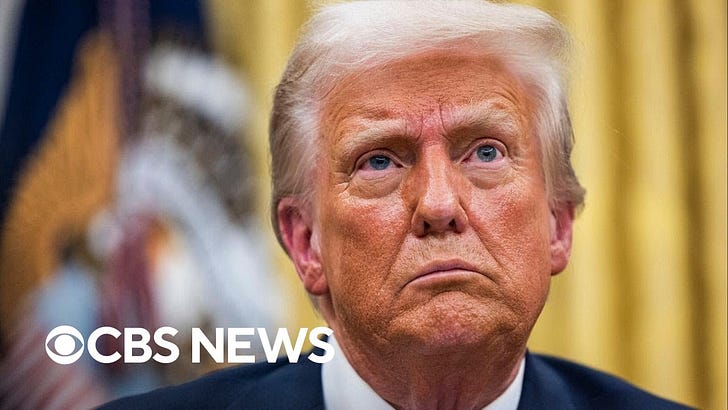The World Economic Forum, awakening from their drunken Adrenochrome fueled orgies, have a come to Jesus moment of clarity.
President Trump is scheduled to speak at the WEF today.
GRAHAM ALLISON, FORMER ASSISTANT DEFENSE SECRETARY: We shouldn't normalize Trump. Trump has done something no person in the world has ever done before. A dead man, a dead politician, has risen.
Someone who, four years ago at Davos, was politically buried and dead, politically, has returned. This is the greatest comeback in political history for a politician, and therefore he thinks he can do anything. There’s a supreme confidence now about that.
Lo and behold, this is a phenomenon we shouldn’t try to understand only in the terms we traditionally accept. We should say something strange, new, and amazing is happening here, and we should study it.
WALTER MEAD: I agree with that, and I think we need to also factor in not only who’s won—Trump—but also who’s lost, which is to say us. By "us," I mean the general intellectual, professional, managerial people who believed history was over, and we were merely administering and managing things according to clear and known rules. We thought history was cumulative, and tomorrow would look much like today, with incremental shifts. That’s not how things work, especially at this kind of moment, when technological transformation is biting into the economy on multiple levels in a transformational way.
I’d also add that Europe epitomizes the "us" who is losing here. The European Union and, by and large, its member states have misread the direction of events. Their focus on causes like climate change and human rights, some others, and their preferred methods of diplomacy, are being gradually marginalized. Something new, not necessarily better, but new, is moving into the center.
QUESTION: What’s more important in the next four years—tech or politics?
WALTER MEAD: You can’t separate them. Tech is transforming politics, and politics affects tech. Fundamentally, we’re witnessing something as earth-shaking as the Industrial Revolution. But unlike the Industrial Revolution, which unfolded over several generations, this transformation is happening much more rapidly. And while the Industrial Revolution started in just a few places and spread gradually, the information era has moved far more quickly.
For example, political crises in countries like India, where a billion people have gained cell phone access in just the last 10–12 years, have fundamentally changed their relationships with government, how they perceive the world, and their own life chances. Governments everywhere are now scrambling to stay ahead of massive changes in public expectations, economic realities, and social institutions. The idea that this could be managed smoothly, without painful or discontinuous change, is perhaps the greatest illusion of all.
ALLISON SHRAGER: I think a lot of economists are shaking their heads at this narrative that neoliberalism failed. From their perspective, the world got a lot richer, and even in richer countries, quality of life has improved significantly. Walter’s point about technological disruption is key, though. What’s happening in tech represents progress, but it also introduces uncertainty and change.
If we look back at the Industrial Revolution, we see similar patterns: rises in populism, distrust, looking inwards, and blame directed at trade—even though trade wasn’t at fault.
People forget how disruptive the Industrial Revolution was. We now look back and marvel at indoor plumbing and other advancements, but it was a tough, lengthy process that unfolded much more slowly.
GRAHAM ALLISON: There's a great book called "Future Shock." Accelerated future shock is a big part of the story of what’s happening now. The pace of change is what makes it so challenging. And yet, there’s an interesting dynamic within U.S. politics.
IAN BREMMER: The Democrats have been divided for years, while Republicans are more united under Trump. However, even within the Republican Party, there are massive policy orientation differences.
You’ve got the "dark MAGA" faction, aligned with figures like Elon Musk, favoring free trade and globalist policies, including dealing with China and supporting H-1B visas. Then there’s the "deep MAGA" faction—populists who fear the uniparty and the so-called deep state. They see both sides of the political aisle as being out to exploit them. They might support a bigger state, but only if it serves the average American.
Trump’s powerful personality papers over these divides, but they’re not getting weaker. Anti-establishment forces in the United States are growing, and their momentum is undeniable.



